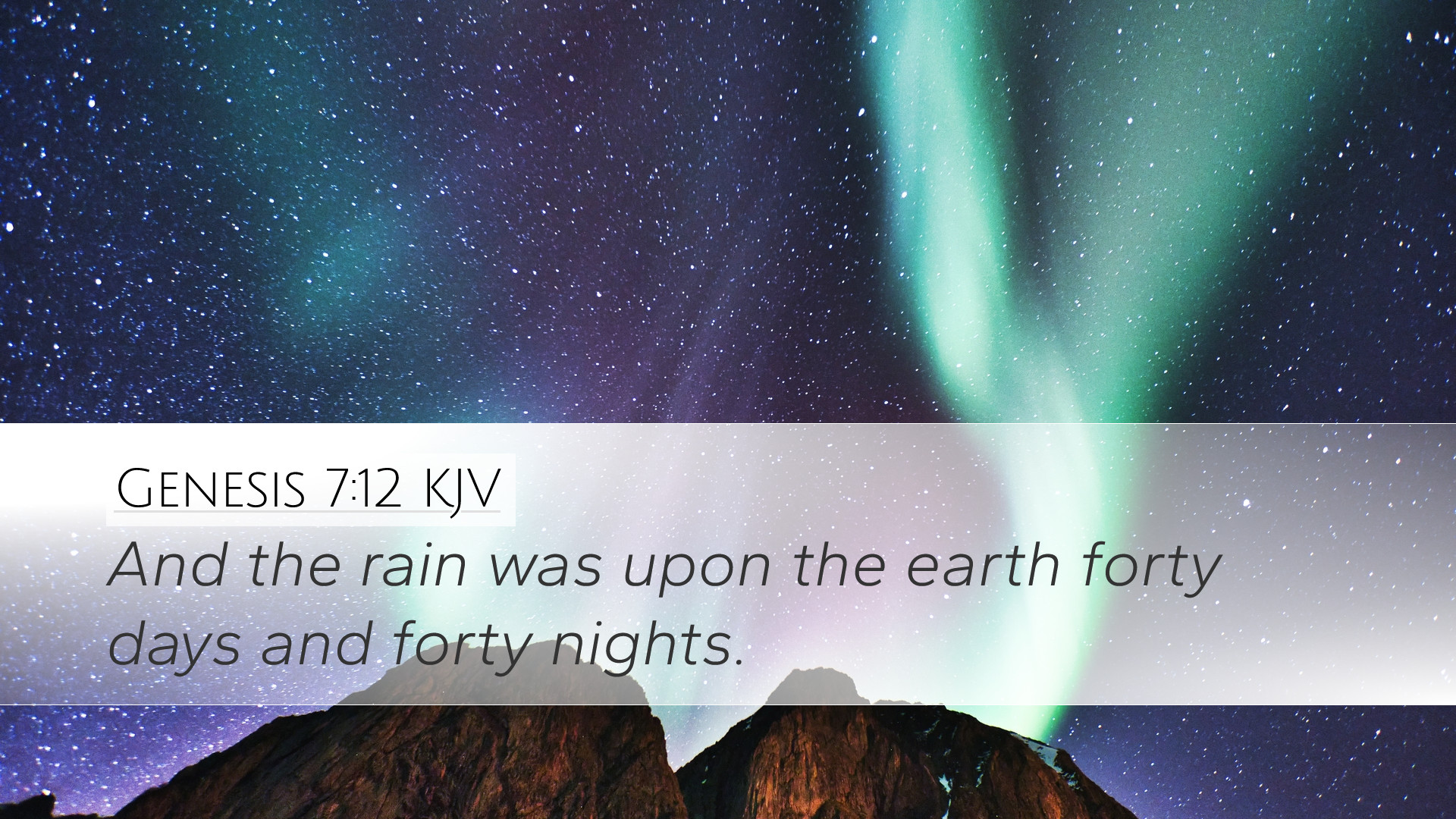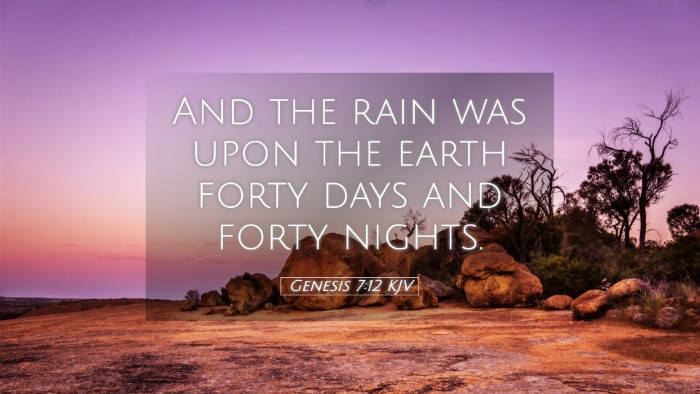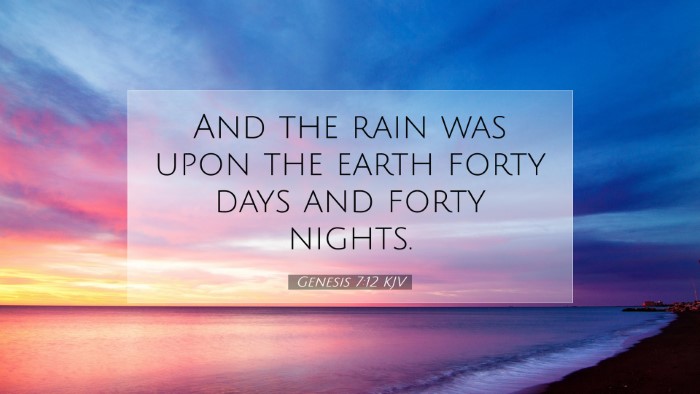Commentary on Genesis 7:12
Genesis 7:12 (KJV): "And the rain was upon the earth forty days and forty nights."
Introduction
The account of Noah's flood is not merely a historical account but serves as a profound theological narrative that has been examined by numerous scholars and theologians over the centuries. Genesis 7:12 encapsulates the intensity and the duration of the deluge, marking a pivotal moment in biblical history that underscores God's judgment and mercy.
Contextual Analysis
This verse is situated within the broader narrative of the flood, which is a significant event in the book of Genesis. The flood serves as a divine response to human wickedness and a means of cleansing the earth. The repetition of "forty days and forty nights" suggests a period of tested endurance and divine action.
Historical Perspective
According to Matthew Henry, the use of the term "rain" signifies not just the precipitation but a comprehensive divine inundation that fulfills God's previous warnings to the generations of Noah's time. Henry emphasizes the importance of understanding the gravity of this event as a divine judgment rather than a mere meteorological anomaly.
Theological Implications
Albert Barnes points out that the forty-day period carries significant theological weight. In biblical literature, the number forty is often associated with judgment and preparation, serving as a time for divine intervention and renewal. The rain's duration is indicative of God’s serious dealings with humanity, emphasizing the necessity of repentance and the gravity of sin during that era.
Symbolism of Water
Adam Clarke interprets the waters of the flood symbolically, suggesting they represent chaos, judgment, and potential for new beginnings. In the context of the flood, water acts both as a means of destruction for the wicked and as a vehicle for salvation for Noah and his family. This duality of water as both life-giving and life-ending invites deeper reflection on God’s nature and His dealings with His creation.
Literary Structure
The structure of this verse draws attention to several key elements of divine communication and human response. It serves as a critical juncture in the narrative, bringing tension to the foreground as the flood begins, marking the culmination of God's warnings.
- Immediacy of Judgment: The phrase indicates that the flood was sudden and overwhelming.
- Duration as Significance: The specificity of "forty days and forty nights" highlights the thoroughness of God's judgment.
Application for Today
For pastors and theologians, this passage holds critical applications for preaching and teaching. The narrative of the flood illustrates the serious consequences of sin and the hope found in God's provision for salvation, represented through Noah's ark. The repeated emphasis on the rain prompts reflection on the ways God intervenes in history and the mercies extended to those who walk in obedience.
Call to Repentance
In contemporary ministry, the connection made by Henry, Barnes, and Clarke highlights the urgent call to repentance. Just as Noah's time was marked by ungodliness, so too must modern believers recognize the need for sincere repentance and humility before God, acknowledging His authority and grace.
Understanding God's Judgment and Grace
This verse invites deeper contemplation concerning God's character—His justice and mercy. The flood symbolizes not only judgement but also a new beginning, as seen through Noah's lineage post-flood. It asks believers to understand that God's actions, while sometimes severe, are ultimately rooted in love and the desire for restoration.
Conclusion
Genesis 7:12 serves as a reminder of the intertwining themes of judgment and grace within Scripture. The insights from the commentaries of Matthew Henry, Albert Barnes, and Adam Clarke collectively enrich this understanding, urging modern audiences to reflect on God's sovereignty in history and His call for righteousness. As believers and scholars engage with this text, the challenge remains to apply its truths in a manner that fosters a deeper understanding of God's intentions—both in the past and for the present.
In summary, the examination of Genesis 7:12 through the lenses of various commentaries provides a multifaceted understanding of not only the event itself but also the implications for faith and practice today. It is an invitation to engage with Scripture fully, taking note of God’s enduring promise and sovereign action in the world.


